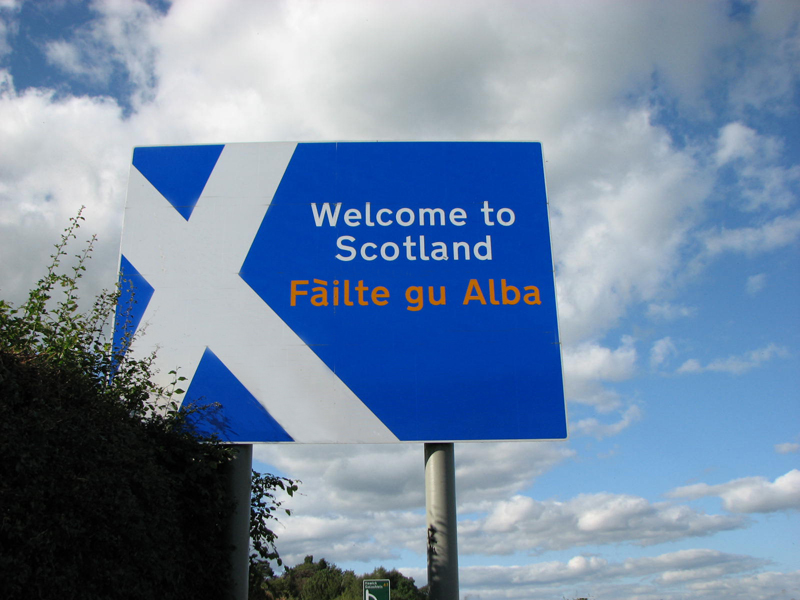UK Labour Party leader Ed Miliband has warned that a vote for Scottish Independence would mean a manned border between Scotland and England, the Daily Mail has reported. Speaking in an interview, Mr Miliband said “If you don’t want borders, vote to stay in the United Kingdom.”
Independence campaigners were quick to dismiss the threat as nonsense, with a Yes campaign spokesman saying “There will be no border posts between an independent Scotland and the rest of the UK.”
But the reality is that there would have to be.
“The No campaign will say anything to try to scare people into throwing away this unique opportunity to put our future into our own hands,” they claimed. But Miliband and his team have stated that the threat is not mere rhetoric, especially if Scotland joins the European Union, as it has promised to do.
They point to a secret, 2009 Foreign Office document which warned that guarded borders would have to be established under that scenario in order to protect the rest of the UK from illegal immigration. For its entire history, Britain has been more secure than mainland Europe, though still suffering from porous borders. A Scottish, EU member state on England’s border, with no manned checkpoints, would spell disaster for the country.
Miliband’s comments come during a week in which the border crossing at Calais in France saw unprecedented numbers of illegal immigrants attempt to force their way onto cross channel ferries. They were held off by ferry staff who turned fire hoses on them and quickly pulled up the ramp to the ferry. Over 150 immigrants were then escorted off port premises by French police.
One of the conditions for new countries joining the EU is participation in the Schengen Area, a borderless region covering most of Europe. Britain currently has an opt-out from the Area, which means that passports still have to be shown to enter mainland Britain at any of England, Scotland and Wales’s ports, airports and international train terminals.
However, if Scotland were to participate in Schengen, the whole of the 95 mile long border between England and Scotland would leave England and Wales vulnerable as illegal immigrants could first travel to Scotland without any immigration checks, and then make their way into England overland.
The border is crossed by 21 roads, including two motorways: the M1 and the M74. All would have border crossings installed, meaning delays for the 23 million vehicle crossings per year. In addition, 8 million border crossings are made by train, so all Scottish services would need to be isolated and subject to border controls in the same way that the Eurostar currently is.
This is not the first threat to independence to have been blithely dismissed by the Yes campaign. The campaign’s white paper Scotland’s Future: your guide to an independent Scotland, which lays out the vision for an independent Scotland assures voters that “We will retain the pound in an independent Scotland”, and asserts that “The pound is Scotland’s currency just as much as it is the rest of the UK’s.”
However, the Chancellor of the Exchequer, George Osborne didn’t agree:
“If Scotland walks away from the UK, it walks away from the UK pound,” he stated in February of this year. “The pound isn’t an asset to be divided up between the two countries after break-up as if it were a CD collection,” he continued; “The value of the pound doesn’t lie in the paper and ink that’s used to print it. The value of the pound lies in the entire monetary system underpinning it.
“It is clear to me I could not as Chancellor recommend that we could share the pound with an independent Scotland. … ‘I don’t think any other Chancellor of the Exchequer would come to a different view.”
Scotland will go to the polls in eleven days time to decide on independence, in a poll that is becoming increasingly difficult to call ahead of time. Polling conducted by YouGov for the Sunday Times showed that the Yes campaign had taken a narrow lead of 51 Yes – 49 No, when undecided voters were removed from the results.

COMMENTS
Please let us know if you're having issues with commenting.